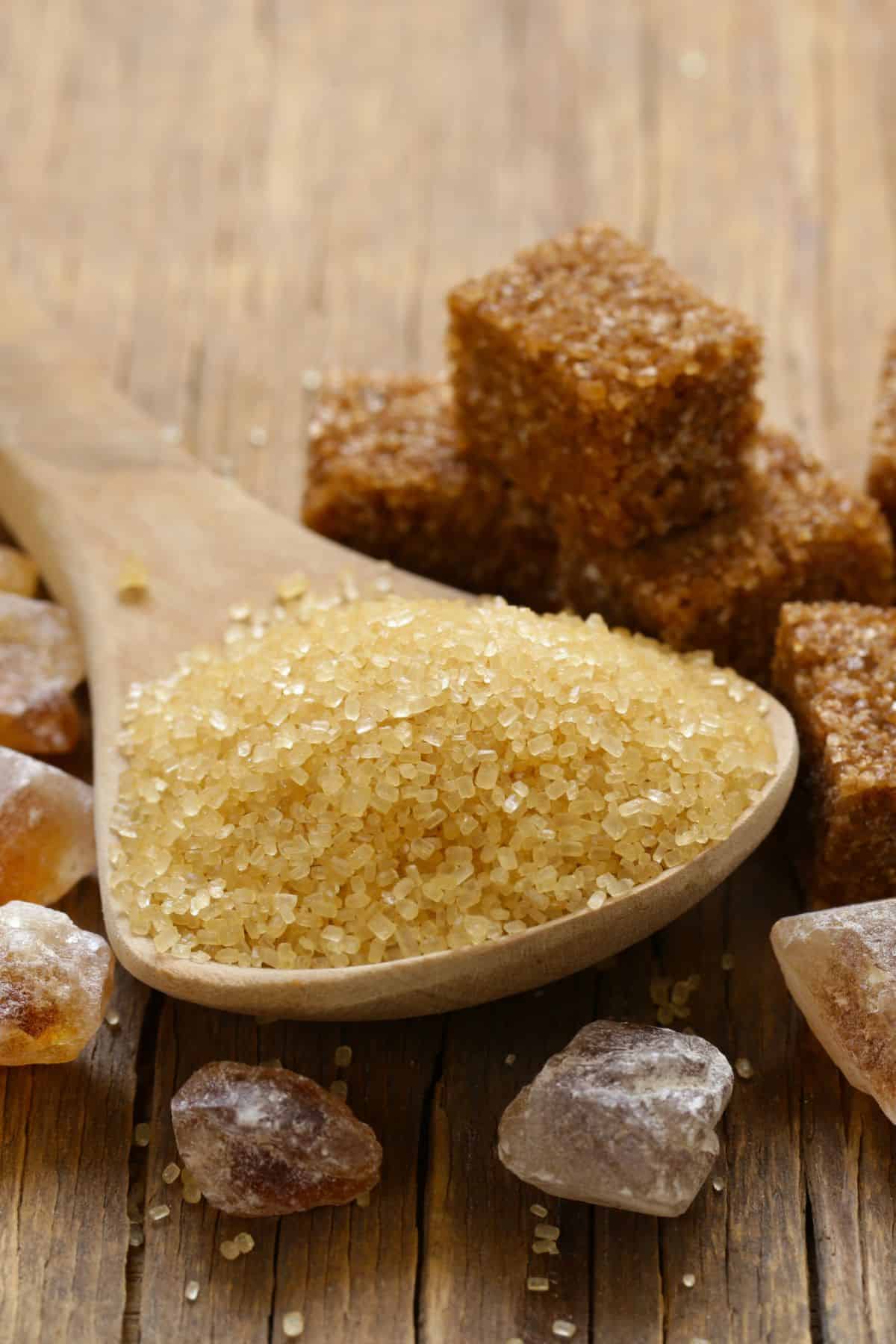Efficient Cane Sugar Processing: Making Best Use Of Return and Pureness
Efficient Cane Sugar Processing: Making Best Use Of Return and Pureness
Blog Article
A Detailed Overview of the Wellness and Economic Effects of Cane Sugar Processing on Local Areas
Cane sugar handling plays an essential function in shaping the financial landscape of neighborhood areas, offering work possibilities and boosting secondary sectors. The wellness ramifications linked with high sugar intake can not be overlooked, as they contribute to rising prices of obesity and diabetes mellitus.
Economic Benefits of Walking Stick Sugar Processing
Cane sugar handling provides considerable financial benefits that extend beyond the prompt agricultural field. The farming and processing of sugarcane create numerous work chances, from farming to manufacturing and circulation. This work generation not only sustains neighborhood economies but additionally fosters neighborhood advancement by providing secure revenue resources for families.
Moreover, the sugar market boosts ancillary organizations, including transportation, tools supply, and packaging services (Cane Sugar Processing). As these industries grow, they add to a more durable economic structure, improving overall community resilience. The export capacity of refined walking cane sugar additionally amplifies economic advantages, placing areas as competitive gamers in global markets
Investment in contemporary handling facilities can result in enhanced productivity and efficiency, consequently lowering waste and maximizing resource use. This change not only benefits the regional economy but likewise sustains sustainability efforts by reducing ecological impacts.
Moreover, the profits generated from cane sugar processing can be reinvested in neighborhood infrastructure, education, and health care, advertising alternative area development. On the whole, the financial benefits of walking cane sugar handling are complex, providing a foundation for enduring prosperity in farming areas.
Health And Wellness Dangers Related To Sugar Intake
Too much sugar usage positions significant health threats that require significant focus. High consumption of added sugars, particularly from processed beverages and foods, has been connected to many health complications.
Additionally, high sugar consumption is linked with cardiovascular illness. Elevated blood glucose degrees can lead to insulin resistance, a precursor to numerous heart-related issues. Furthermore, sugar can have harmful effects on dental health, resulting in tooth cavities and gum tissue illness, as bacteria in the mouth thrive on sugar, producing acids that deteriorate tooth enamel.
Moreover, arising research recommends a prospective web link in between high sugar usage and mental health and wellness disorders, such as depression and anxiety. As communities grapple with these wellness threats, it comes to be important to promote understanding and motivate much healthier nutritional selections. Dealing with sugar intake is essential not just for private health and wellness yet also for the overall well-being of neighborhood communities, highlighting the need for extensive public health and wellness techniques.
Ecological Influences of Sugar Production
Often neglected in conversations regarding sugar's implications is the substantial ecological effect of sugar production. The cultivation of sugarcane typically requires comprehensive land usage, leading to deforestation, loss of biodiversity, and disruption of local environments. The conversion of forests and marshes into sugar ranches can result in environment damage, threatening many types and altering ecological equilibrium.
Furthermore, sugar production is resource-intensive, consuming substantial amounts of water for irrigation. This can bring about deficiency of regional water resources, detrimentally influencing both farming techniques and area accessibility to clean water. Furthermore, the use of chemical fertilizers and chemicals in sugarcane farming can contribute to dirt destruction and water contamination, as drainage from these chemicals enters close-by rivers and lakes, impacting marine life and human health.
The environmental impact encompasses the handling stage, where power usage and waste generation more exacerbate ecological problems. Air pollution from shedding sugarcane fields, together with greenhouse gas exhausts, add to climate change. Thus, the environmental implications of sugar production warrant major factor to consider, prompting stakeholders to embrace even more lasting techniques to minimize these adverse effects on local environments and communities.
Work Creation and Area Growth
The ecological difficulties posed by sugar production are usually counterbalanced by its potential for financial advantages, especially in job creation and neighborhood advancement. The walking stick sugar industry serves as a considerable source of employment in many rural areas, providing tasks throughout different skill levels, from farming labor to handling and circulation functions. This employment not just sustains individual family members however likewise contributes to the overall economic vigor of regional neighborhoods.
Additionally, the establishment of sugar processing facilities boosts supplementary businesses, such as transportation solutions, devices supply, and upkeep carriers. As these services flourish, they create additional jobs and strengthen regional economic situations. The revenue created from the sugar sector likewise brings about boosted tax profits, which can be reinvested into community dig this solutions such as education and learning, facilities, and medical care development.
Furthermore, the sugar industry frequently participates in area advancement efforts, such as sustaining regional colleges and wellness programs, therefore boosting the lifestyle for locals. By promoting strong community ties and promoting economic development, the cane sugar processing sector plays a vital duty in uplifting neighborhood populaces, making it an important component of lasting growth approaches in sugar-producing areas.
Balancing Wellness and Economic Growth
In navigating the intricacies of walking cane sugar processing, a crucial difficulty depends on balancing wellness considerations with economic development. The sugar market considerably adds to regional economic situations by producing work, boosting associated industries, and raising tax obligation revenues. Nonetheless, the health effects related to too much sugar consumption can result in persistent illness such as obesity, diabetic issues, and cardiovascular concerns, which can concern public wellness systems and reduce workforce efficiency.

Furthermore, regulative structures can play a crucial role in guiding industry practices in the direction of even more lasting and health-conscious techniques. By promoting cooperation in between government bodies, health and wellness companies, and the sugar industry, areas can browse the dichotomy of health and wellness and economic growth, guaranteeing that the advantages of walking stick sugar processing are equitably shared while prioritizing public health and wellness.
Final Thought
In final thought, the processing of cane sugar presents both considerable economic benefits and remarkable health dangers for local communities. While it fosters task creation and boosts local development, the involved health and wellness problems, especially regarding weight problems and diabetic issues, necessitate a careful balancing act. By advertising responsible intake and investing in neighborhood education and learning and sustainable techniques, it is feasible to make best use of economic benefits while lessening damaging health and wellness impacts, thus ensuring a healthier future for neighborhood populations.
Furthermore, sugar can have destructive results on dental health, resulting in tooth cavities and periodontal condition, as germs in the mouth grow on sugar, generating acids that wear down tooth enamel.
Attending to sugar usage is crucial not just for private health and wellness but likewise for the overall health of local neighborhoods, highlighting the demand for detailed public wellness approaches.
Often forgotten in conversations about sugar's ramifications is the considerable ecological impact of sugar manufacturing. this post The health and wellness ramifications connected with extreme sugar intake can lead to chronic conditions such as weight problems, diabetes mellitus, and cardio concerns, which can burden public health systems and reduce labor force efficiency.

Report this page